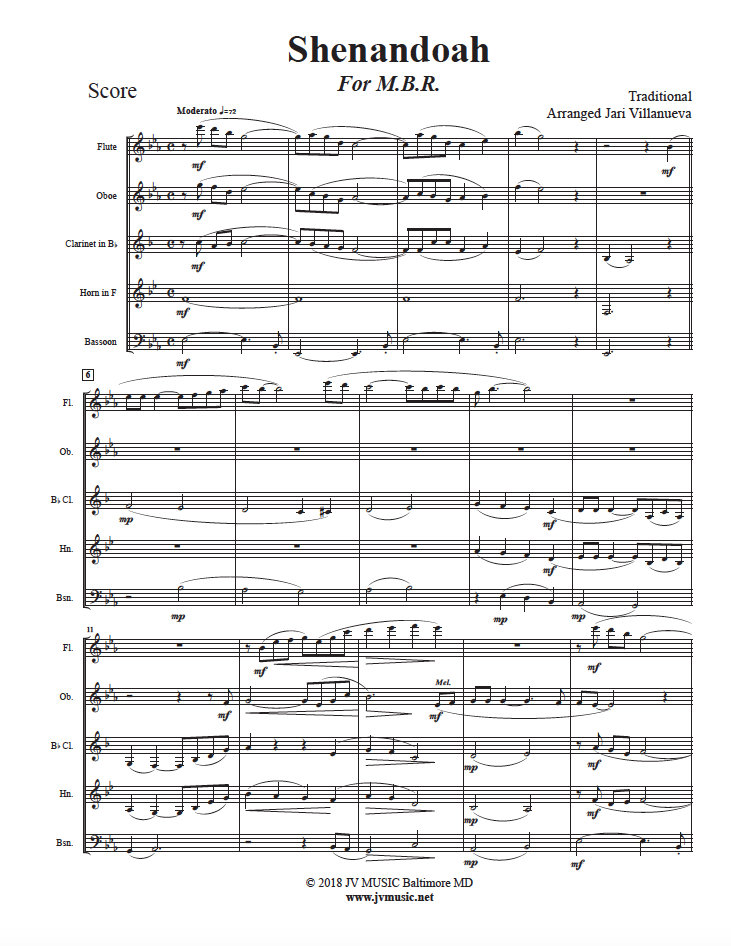FOR A LIST OF ARRANGEMENTS ONLY AVAILABLE ON SHEET MUSIC PLUS CLICK HERE:
Shenandoah for Woodwind Quintet
Shenandoah for Woodwind Quintet
Traditional American Folksong Arranged by Jari Villanueva
Flute
Oboe
Clarinet in Bb
Horn in F
Bassoon
Score and parts in pdf format. Downloaded upon payment
Shenandoah is said to have originated with French voyageurs traveling down the Missouri River. The lyrics tell the story of a trader who fell in love with the daughter of an Algonquian chief, Shenandoah. American sailors heading down the Mississippi River picked up the song and made it a capstan shanty that they sang while hauling in the anchor.
Perhaps one of America’s most recognizable folk tunes, the origins of "Shenandoah" are not so easily deciphered. Like many folksongs, it is impossible to determine exactly when the song was composed, yet it probably did not originate later than the Civil War. In any case, by the nineteenth century, "Shenandoah" had achieved widespread popularity, both on land and at sea.
American folklorist Alan Lomax suggested that "Shenandoah" was a sea-shanty and that the "composers" quite possibly were French-Canadian voyageurs. Sea shanties were work songs used by sailors to coordinate the efforts of completing chores such as raising the ship’s anchor or hauling ropes. The formal structure of a shanty is simple: it consists of a solo lead that alternates with a boisterous chorus. With the sweeping melodic line of its familiar refrain, "Shenandoah" is the very nature of a sea shanty; indeed, the song’s first appearance in print was in an article by William L. Alden, titled “Sailor Songs,” that was published in Harper’s New Monthly Magazine (1882).
As unclear as is the song’s origin, so is the definitive interpretation of its text. Some believe that the song refers to the river of the same name. Others suggest that it is of Native American origin, for it tells the tale of Sally, the daughter of the Indian Chief Shenandoah, who is courted for seven years by a white Missouri river trader. Regardless of these textual discrepancies, "Shenandoah" remains an American classic.

